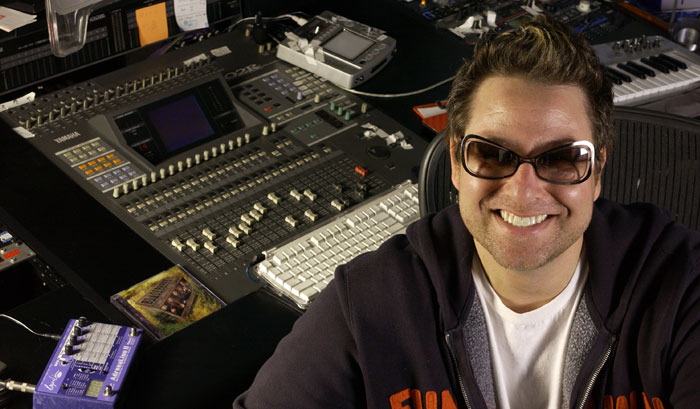


Despite his last name, most of Joe Solo's career is based on collaboration.
"I get off on the synergy of working with other people more than working by myself," says the Los Angeles-based songwriter, producer, film composer and multi-instrumentalist. "So almost everything I do is a collaborative effort."
Solo's latest efforts include writing with Macy Gray in advance of her upcoming album, producing a new hip-hop artist named Javis, and serving as casting consultant for Ozzy and Sharon Osbourne's latest TV show.
Solo may be multi-faceted by nature, but he's quick to point out that diversity is an essential survival skill in today's music industry, where eking out a living as a songwriter is more challenging than ever. "It's real tough right now for publishers to place songs, because the labels aren't putting out product like they used to," he notes. "There's a massive metamorphosis in the industry right now, with the balance of power shifting from major to independent labels because the majors have 'unlearned' how to take risks and develop acts. It's not their fault-large corporations bought them out, and an executive is going to get canned if he can't meet the quarterly profit goals. So the labels don't have as much ability to cultivate artists."
Which means musical entrepreneurs such as Solo must take up the slack. It also means they have to produce high-gloss music on freelance budgets. "Years ago a simple demo was good enough," says Solo. "But now the level of competition is so high, you basically have to turn in finished masters. But that makes sense, because if a great song is framed by a production that jumps from the speakers and supports the vocal, it will be received better than some halfway-produced demo."
In fact, argues Solo, halfway-there productions are always a bad idea. "It's okay to have a simple piano/vocal demo just to show someone an idea. But turning in something that's half-produced only confuses people. It's as if the production is purporting to be more complete than it is. So I never play anything for anyone that isn't completely finished or just starting."
Whether songwriting or scoring, Solo perceives his own style as a blend of two contrasting vocabularies. "On one side," he says, "I have an organic R&B style. I use a lot of real instruments. Or when I use the synthesized sounds, like the ones from my Yamaha Motif 8 keyboard, I run them through stompboxes to dirty them up. Meanwhile, my other side is spacy, atmospheric, and introspective- things with a floaty atmosphere, like Pink Floyd, Enya, Enigma, Morcheeba, and Radiohead."
Solo crafts his earthy/ethereal sounds in a home studio that includes a pair of Yamaha digital mixers: an original O2R and a new 02R96. "They're the heart of my entire system," he says. "They sound incredible. I get bigger, badder, better sounds by running the tracks through the boards, as opposed to mixing everything inside the computer and taking a stereo out. Also, I like the tactile feel of a board I can play like an instrument, and I don't get that feel from any of the control surfaces you can buy for the DAWs."
Other essential features are the boards' automation and instant recall capabilities. "I'm working on between 30 and 40 different projects at any time," says Solo. "It would be impossible to re-patch everything whenever I switch between songs. But with the Yamahas, I can hit two buttons and have my mix back. And it's great having all the processing right there in the board, where it gets saved with each scene. What more would you want from a mixing board? Maybe if it made coffee and shined your shoes. I've used many different boards, but I always come back to the 02R. Always."
While Solo sings the praises of his publisher and film-scoring agent, he says it's essential for freelancers to generate their own action. "Look for new opportunities, or create your own," he advises. "And on the most fundamental level, just write good material! It sounds simplistic, but it's true. Take the time. Be tough on yourself. Make sure every syllable of every lyric means something. Emphasize your unique facets. Say something in a new way. Make your melodies fresh. Make sure the production and arrangement are tight. Make every aspect of the music undeniable."
























